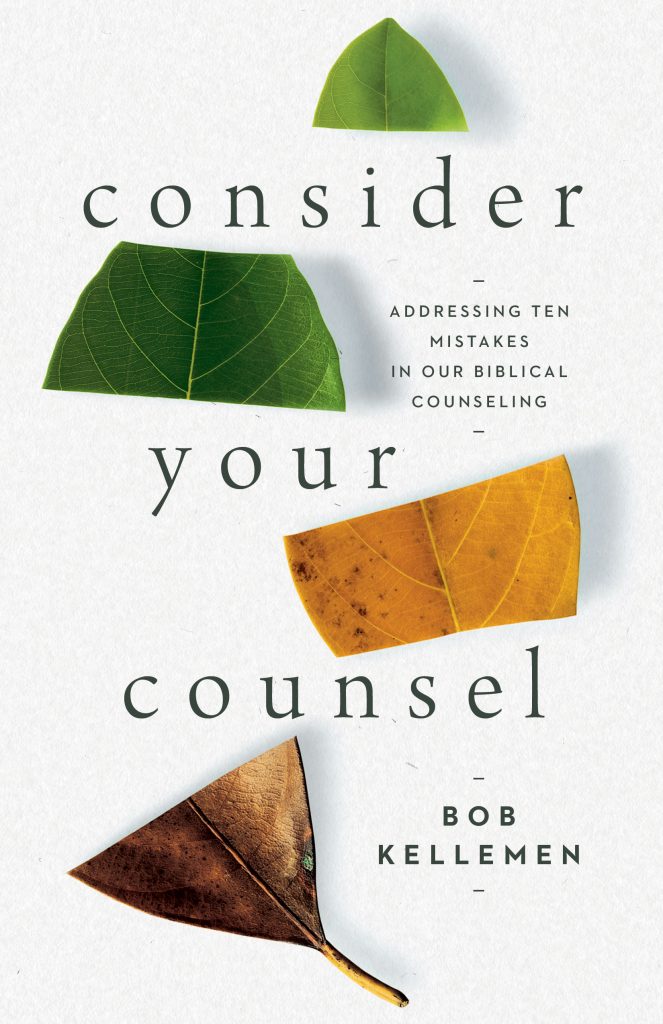Not long ago, several biblical counseling students who had been under my supervision asked my thoughts on common themes, threads, and patterns I detected as a counseling supervisor. They were specific:
“We’re not asking about all the ‘good stuff’ we do as biblical counselors. We’re interested in the consistent areas where you sense a need for growth.”
Because it’s a passion of mine to encourage biblical counselors who are looking for ways to grow, their question intrigued me. And, since I’m a collator of patterns, their request sent me back to my supervisory notes.
Encouragement, Not Critique
My only hesitation in collating a list of the top mistakes I see in biblical counseling is that I do not want to foster a negative perception of the modern biblical counseling movement. I’m a big fan of biblical counseling and biblical counselors. I’m a biblical counselor. I’ve invested over thirty years into providing biblical counseling, equipping biblical counselors, and supervising biblical counselors.
It was one of the greatest joys of my ministry life to be the founding Executive Director of the Biblical Counseling Coalition. The vast majority of the content I’ve written in more than 2,500 blog posts, more than 150 published articles, and more than twenty books and booklets focuses on a positive presentation of biblical counseling and Christian living.
That said, there’s something very healthy and humble about a movement self-assessing, self-critiquing, and self-correcting—biblically, wisely, collaboratively, and graciously. Indeed, the modern biblical counseling movement was launched with the concept of confronting out of concern for change. And biblical counseling is well known for self-counsel and self-confrontation. So it would be unusual for us as biblical counselors not to consider our counseling individually and collaboratively.
Rather than focusing on critique, my desire is to highlight tendencies I’ve noticed in the thousands of biblical counselors I’ve trained and the hundreds of biblical counselors I’ve supervised over the past thirty years. These include laypeople in four churches, pastors, counselors, Bible college students, and seminary students in over a dozen schools (as a professor and as an adjunct/visiting professor). My supervisees also include experienced counselors and mature pastors who have requested additional counseling supervision. I poured over my supervision notes asking:
What patterns, themes, and threads of blind spots do I detect in rookie and veteran biblical counselors—myself included—that we need to address so we can become more competent counselors?
Self-Reflection
As I’ve reflected on this question, the themes that have emerged center around the idea that we need to listen more—listen well, listen to love, and listen to understand. We also need to prioritize personal connection to our counselees over data collection. We must work to view people comprehensively instead of one-dimensionally, and we must keep in view both their suffering and their sin, maximizing the grace of God as we bring the truth of the gospel to bear on their lives.
Although I’ve been providing biblical counseling for thirty-five years, I have made missed the mark many times on these points. Even “seasoned” biblical counselors can benefit from a course correction. We are wise to regularly self-assess and to have others speak into our practice of biblical counseling. My heart behind sharing these observations is to encourage all of us to continue to deepen and develop as biblical counselors. Biblical counselors are well known for emphasizing progressive sanctification—ongoing growth in Christ. We can think of this book as part of that iron-sharpening-iron process of progressively growing together as biblical counselors.
Drawing Positives Out of Negatives
When I supervise counselors, I spend a good deal of time affirming the positives I see. For instance, “That was great how you interacted there. Keep doing more of that!” or “Wow! That was amazing how you connected Scripture to life there. What biblical insights led you to pursue that helpful direction?”
Even if I detect weaknesses or “mistakes,” my aim in discussing them is to help counselors-in-training to mature. For instance, “Your interaction there seems a tad off track in this specific way. . . . Let’s talk about what might have been going on there. What way of thinking about counseling might have led to that interaction? And let’s ponder what you—and I—could learn from this.”
Let’s begin learning together—from our mistakes. Let’s keep learning and growing into more mature biblical counselors who speak and live God’s truth in love.
Consider Your Counsel: Addressing Ten Mistakes in Our Biblical Counseling
Bob Kellemen comes alongside counselors and shares where he and others have missed the mark. Drawing on more than three decades of counseling supervision experience, he unpacks ten of the most common missteps that he has noticed in his own counseling, as well as those he has mentored.
Image by biefreepik on Freepik.






